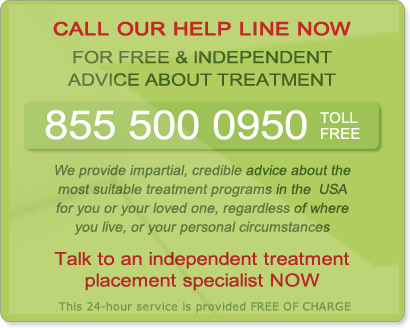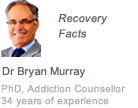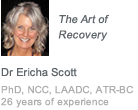Alcohol and Domestic Abuse
Read the phrase ‘alcohol and domestic abuse’ and an image comes to mind, something along the lines of a clearly drunken and angry man raising his fist to a subordinate and fearful wife. It is an image that has been reinforced by stories we may have read in the press or seen in campaigns for charities that support victims of domestic abuse.
But this is not quite the true picture of alcohol and domestic abuse. There can be no denial that domestic abuse exists and is a serious issue. And there can be no doubt that there are links between alcohol and domestic abuse, but the issue is complex and to deal with it we must properly understand it.
No matter whether you are the abuser or the victim, it is vital to get professional help. Both alcohol and domestic abuse can destroy families, tear lives apart and kill. If someone you know is suffering abuse or being abusive you can do something to help. Bring a child’s plight to the attention of a teacher or other trusted adult, take an abused partner to somewhere safe so they can recover and reflect on the situation.
What constitutes domestic abuse?
Domestic abuse is not simply a case of partner ‘A’ repeatedly visiting physical violence upon partner ‘B’. The British Home Offices defines domestic abuse as
“any incidence of threatening behavior, violence or abuse (psychological, physical, sexual,
financial or emotional) between adults who are, or have been, intimate partners or family
members regardless of gender or sexuality.”
In this wider context it becomes clear that domestic abuse is not merely confined to the typical ‘husband and wife’ relationship, and nor is it restricted to the perpetration of physical violence alone.
The links between alcohol and domestic abuse
Alcohol and domestic abuse are connected in two distinct but equally harmful ways. Although alcohol is not proven to be a direct cause of domestic abuse, it can be a contributory factor. Alcohol affects the brain in a number of ways that alter perception of events, impair judgment and relax the inhibitions that would otherwise prevent irrational and excessive reactions. This combination of altered senses and emotions can cause an abusive partner’s temper to become aggravated by a simple misinterpretation of conversation or events, which in turn gives rise to aggressive or abusive behavior.
The second link between alcohol and domestic abuse is that of the victim of domestic abuse resorting to alcohol as a means of temporary escape from the distressing situation they are in. This is a particularly harmful scenario, since if the domestic abuse continues over a prolonged period the victim may become increasingly dependent on alcohol and ultimately succumb to alcoholism.
If you recognize that your own actions or behavior relate to the circumstances outlined here, or you believe that someone you know is in this situation, you must seek professional help. If alcohol is a contributory factor to your own experience of domestic violence, you can be helped and your life can be changed for the better.
Facts and figures about alcohol and domestic abuse
- Between 25% and 30% of the victims of domestic abuse are male
- Research into the defining characteristics of domestic abusers found that alcohol use was a contributory factor in 62% of the cases examined
- The American Medical Association estimates that almost 75% of the female partners of alcohol addicts had been victims of threatening behavior, and 45% had been subjected to physical abuse
- Research conducted in 2005 discovered that 97% of the victims of domestic abuse turned to alcohol as a means of escape from the physical and mental effects of domestic abuse.
- According to Home Office statistics, every week two women in England and Wales are killed by their current or former partner.
- The American charity Children of Alcoholics Foundation Inc. estimates that each year 480,000 children are mistreated by a parent or guardian with an alcohol problem.
These are just a few of the statistics relating to alcohol and domestic abuse. And while they make for difficult reading, it should be borne in mind that they can only ever be a guideline to the true extent of the problem. Many of the victims of domestic abuse, whether alcohol-related or not, are simply too frightened to speak up or take action to change their situation. Some do not even realize that they are victims of domestic abuse. And for others, it is just too late for them to take action of any sort.
Do not end up as just another statistic. Nobody deserves to suffer domestic abuse. You may believe yourself, or someone you know, to be in an impossible position. Changing a way of life to which you have grown accustomed and may be too frightened to walk away from takes immense courage. But there are so many people out there waiting to offer the love, help, support and compassion needed to make a better life.
Realizing that there is a problem, recognizing that something needs to change, admitting to yourself and then to other people that you need help – all of this is probably the hardest process and the toughest decision anyone can ever make. It is also the bravest, most courageous and best decision anyone can make. So do it today.
Getting help for problems with alcohol and domestic abuse
Alcohol plays a part in domestic abuse. As such, both alcohol and domestic abuse are problems. Together they are a volatile and dangerous combination.
If you resort to domestic abuse as a result of drinking alcohol, it is vital that you seek professional help and counseling. It takes great courage to admit to yourself and to others that you have a problem, but if this problem is not addressed the consequences of your actions will not only continue to cause pain and distress to another human, but could ultimately result in tragedy. Being an abuser does not make you bad through and through, there are many reasons that people become abusers. Some were abused themselves; some have other problems and difficulties that leave them feeling helpless so they lash out at the wrong people in the wrong way. Everyone has the right to live a life free of abuse, to feel safe, cared for and appreciated.
If you are the victim of domestic abuse, you too must seek help. You may feel alone or trapped, but you are not. There is hope, and there is help for you in abundance. You may call the police, but you do not have to. There are charities, women’s charities, physicians, counselor’s, self-help groups and many other people you can turn to for help advice and support. You have the right to live a life free of abuse and you do not have to give up that right.
Abused or abuser – seek the help that you need to change your life for the better. Do it today.












